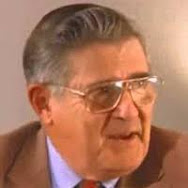Dr. Pim van Lommel writes: “Although I had never forgotten the successfully resuscitated patient in 1969, with his memories of the period of his cardiac arrest, I had not done anything with the experience. This changed in 1976 when I read a book about near-death experiences by Dr. George Ritchie with the title Return from Tomorrow. When Richie had double pneumonia as a medical student in 1943, he experienced a period of clinical death. At the time antibiotics such as penicillin were not yet widely used. Following an episode of very high fever and extreme tightness of the chest, he passed away: he ceased breathing and his pulse also stopped. He was pronounced dead by a doctor and covered with a sheet.
“But a male nurse was so upset by the death of this medical student that he managed to persuade the attendant doctor to administer an adrenalin injection in the chest near the heart—a most unusual procedure in those days. Having been ‘dead’ for more than nine minutes, George Ritchie regained consciousness, to the immense surprise of the doctor and nurse.
“It emerged that during his spell of unconsciousness, the period in which he had been pronounced dead, he had had an extremely powerful experience of which he could recollect many details. At first he was unable and afraid to talk about it. Later he wrote a book about what happened to him in those nine minutes. And after becoming a psychiatrist, he began to share his experiences in lectures to medical students.
“One of the students attending these lectures was Raymond Moody, who was so intrigued by this story that he began to look into experiences that may occur during life-threatening situations. In 1975 he wrote the book Life After Life, which became a global best seller. In this book Moody first coined the term near-death experience (NDE).
“After reading Ritchie’s book, I kept wondering how somebody can possibly experience consciousness during cardiac arrest and whether this is a common occurrence. So in 1986 I began to systematically ask all the patients at my outpatient clinic who had undergone resuscitation whether they had any recollection of the period of their cardiac arrest. I was surprised to hear, within the space of two years, twelve reports of such a near-death experience among just over fifty cardiac arrest survivors.”
Pim van Lommel, Consciousness Beyond Life: The Science of the Near-Death Experience (HarperOne, 2010).





No comments:
Post a Comment